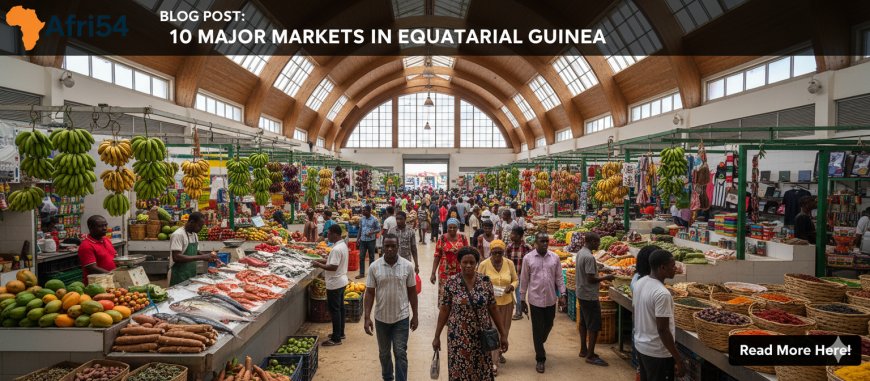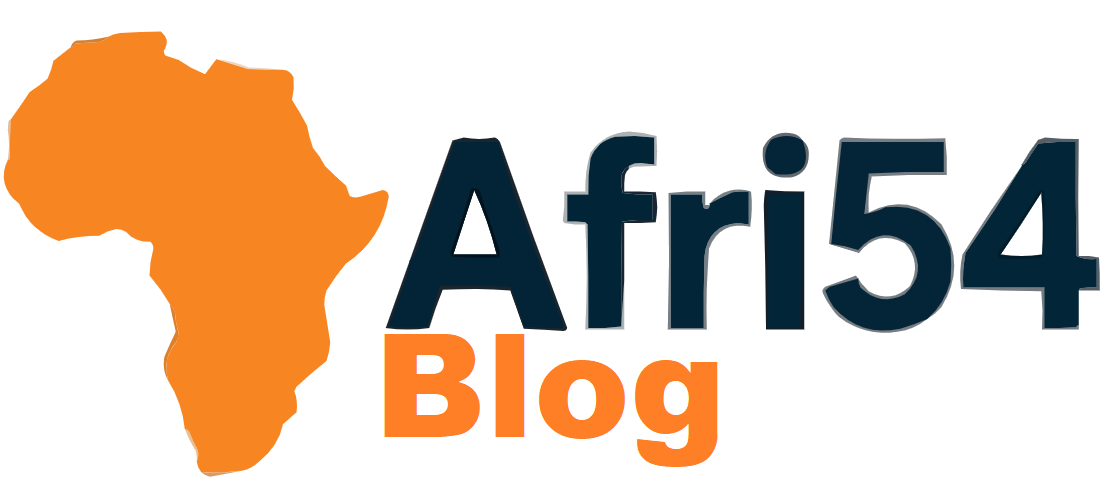10 Major Markets in Equatorial Guinea: A Snapshot of West African Island and Mainland Trade
Explore the 10 major markets in Equatorial Guinea, from the bustling Malabo Central Market to the vibrant hubs in Bata and border towns. Discover fresh tropical produce, seafood, and the unique blend of local and international commerce in this West African nation.

Equatorial Guinea, a unique nation composed of a mainland territory (Rio Muni) and five islands (Bioko being the largest), possesses a fascinating commercial landscape influenced by its geography, diverse ethnic groups, and oil-rich economy. While not as vast in scale as some larger African countries, Equatorial Guinea's markets are vital for daily life, social interaction, and economic activity, reflecting a blend of local traditions and modern influences.
These markets are characterized by their lively, often close-knit atmosphere, the array of products ranging from fresh tropical produce and seafood to imported goods, and their role as essential community hubs. They are places where local farmers, fishermen, and traders connect with urban dwellers, ensuring the flow of goods and information. Whether you're seeking staple foods, unique local ingredients, or simply want to experience the daily rhythm of Equatoguinean life, these markets offer an authentic glimpse into the nation's culture and commerce.
Let's explore 10 of the major markets that play a significant role in the commercial landscape and daily lives across Equatorial Guinea:
1. Malabo Central Market (Malabo, Bioko Island)
The largest and most important market in Equatorial Guinea, located in the capital city on Bioko Island. This bustling market is a vibrant hub where you can find an extensive range of fresh fruits, vegetables, meat, fish (especially seafood from the Atlantic), spices, clothing, household goods, and imported items. It's a central point for both local commerce and trade influenced by the island's port.
2. Basupu Market (Basupu, Bioko Island)
Situated outside of central Malabo, Basupu's market serves a significant local community on Bioko Island. It's known for its fresh produce sourced from the island's fertile lands, local foodstuffs, and everyday necessities. It offers a more local and less tourist-oriented shopping experience.
3. Luba Market (Luba, Bioko Island)
Luba, a port town on Bioko's west coast, has a market that is crucial for its residents and surrounding areas. Given its coastal location, fresh seafood is a staple, alongside local produce and goods brought in via the port. It's a key point of economic activity for the western part of the island.
4. Bata Central Market (Bata, Rio Muni)
As the largest city on the mainland, Bata's Central Market is the commercial heart of Rio Muni. It's a vast and energetic market, offering a wide variety of tropical fruits and vegetables, staple foods, fresh fish from the estuary, meat, textiles, and household goods. It's a vital economic artery for the mainland population.
5. Cogo Market (Cogo, Rio Muni)
Cogo, located on the southern coast of Rio Muni near the border with Gabon, has a market that is significant for cross-border trade and local commerce. It's a key source for local produce, fish from the rivers and coast, and goods influenced by its proximity to neighboring countries.
6. Ebebiyín Market (Ebebiyín, Rio Muni)
Ebebiyín, situated at the tripoint border with Cameroon and Gabon, is a major trade hub on the mainland. Its market thrives on regional and international commerce, with goods flowing in from all three countries. You can find a diverse array of products here, from food to manufactured goods.
7. Mongomo Market (Mongomo, Rio Muni)
Mongomo, a significant town in eastern Rio Muni, has a market that serves as an important regional center. It's crucial for the distribution of local agricultural products, livestock, and essential goods for the communities in the surrounding areas.
8. Evinayong Market (Evinayong, Rio Muni)
As the capital of the Centro Sur Province, Evinayong's market is a key hub for inland commerce on the mainland. It focuses on local produce, staple foods, and connecting rural agricultural areas with urban centers within the province.
9. Annobón Market (Annobón Island)
Annobón, the smallest and most remote of Equatorial Guinea's islands, has a very localized market. It's primarily focused on fresh fish, root crops, and other essentials for the island's inhabitants. This market reflects the unique, isolated culture and economy of Annobón.
10. Corisco Market (Corisco Island)
Corisco Island, located near the mainland coast, has a small but vital market serving its local population. It’s primarily focused on fresh seafood, local fruits, and vegetables, providing a glimpse into the daily life and self-sufficiency of the island community.
Have you listed your business on Afri54?
Afri54 exists to solve a fundamental challenge faced by millions of African businesses: lack of visibility. Whether you're an automobile part seller in Lagos, a local attire manufacturer in Kigali, a coffee exporter in Addis Ababa, or a mobile phone supplier in Accra, you deserve to be seen. Join now






















